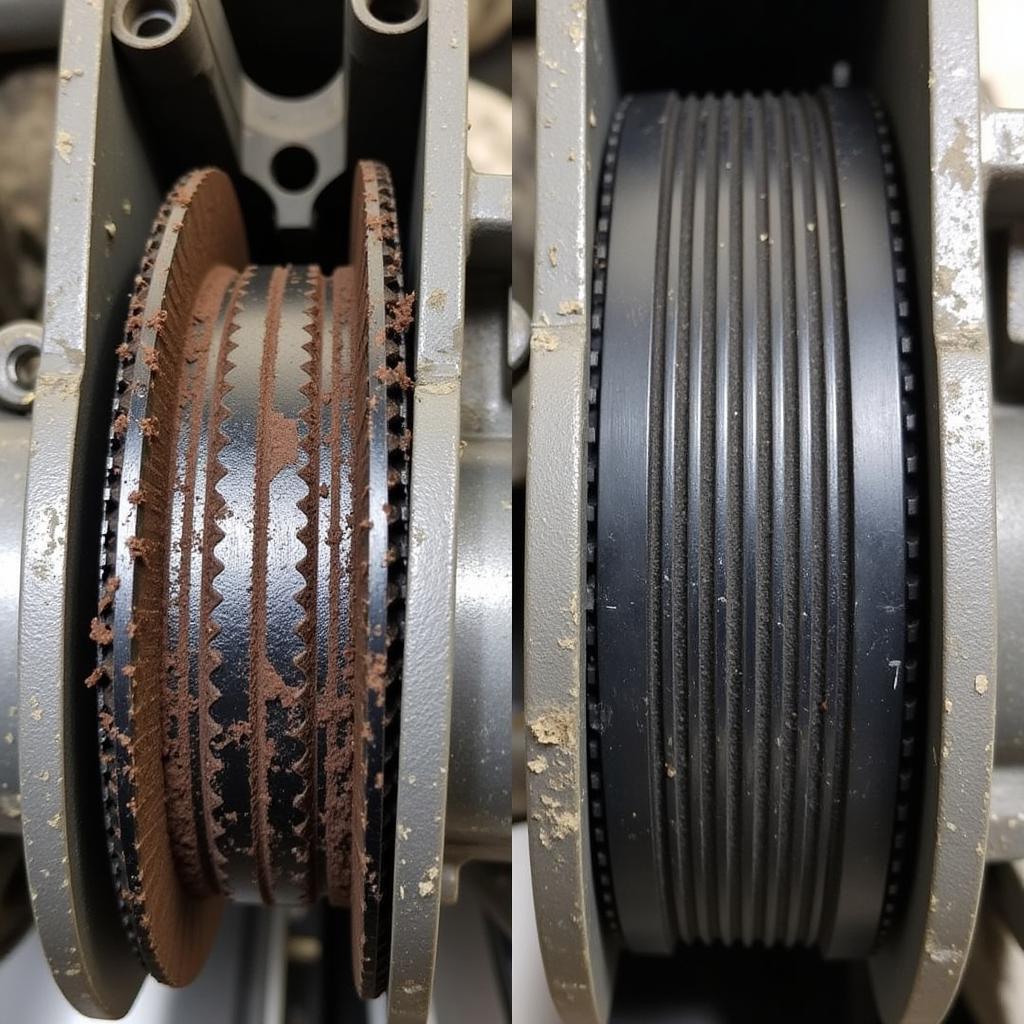Experiencing a strange motorcycle-like noise coming from your car engine? While it might sound alarming, don’t panic. This issue is more common than you think, and many potential causes are easily fixed. This guide will help you pinpoint the source of that pesky noise and outline some solutions to get you back on the road with confidence.
Common Causes of Motorcycle Noise in Car Engines
Several culprits could be causing your car to sound more like a Harley. Let’s break down some of the most frequent reasons:
## 1. Exhaust System Issues
Your car’s exhaust system is responsible for channeling hot, noxious gases away from the engine. A leak or damage within this system can create that roaring, motorcycle-like sound.
- Signs: A noticeable increase in engine noise, especially when accelerating. You may also notice a pungent smell from the exhaust fumes.
- Common culprits: A hole in the muffler, a cracked exhaust manifold, or a damaged exhaust pipe.
-
## 2. Timing Belt or Chain Problems
The timing belt or chain ensures your engine’s valves open and close in sync with the pistons. When this system malfunctions, it can lead to a loud rattling or whining noise, especially upon starting the car or when accelerating.
- Signs: A rattling noise that changes pitch with engine speed, potentially accompanied by engine performance issues like misfiring or difficulty starting.
- Common culprits: A worn or loose timing belt or chain, damaged tensioners, or worn guides.
 Worn Timing Belt
Worn Timing Belt
## 3. Low Oil Levels or Bad Oil Quality
Engine oil acts as a lubricant, reducing friction between moving parts. When oil levels are low, or the oil itself has degraded, it can lead to increased engine noise, often resembling a high-pitched whining or tapping.
- Signs: An increase in engine noise, particularly a tapping or ticking sound that gets louder as the engine revs. You may also see the oil pressure warning light illuminated on your dashboard.
- Common culprits: Oil leaks, failure to change the oil regularly, or using the wrong type of oil for your car.
-
## 4. Issues with the Alternator or Water Pump
Both the alternator (which charges the battery) and water pump (which circulates coolant) are driven by belts connected to the engine. If these belts are worn, loose, or their bearings are failing, they can generate a whining or squealing noise.
- Signs: A high-pitched squealing or whining sound that may change with engine speed.
- Common culprits: Worn or loose alternator or water pump belts, failing bearings within these components.
What Should You Do if You Hear Motorcycle Noise?
If you suspect your car is making unusual noises, don’t ignore them! Early detection and repair can prevent further damage and costly repairs down the line. Here’s what to do:
- Identify the Noise: Try to pinpoint the type of noise (whining, rattling, squealing) and when it occurs (starting, accelerating, idling).
- Check Fluid Levels: Ensure your engine oil and coolant levels are within the recommended range.
- Inspect the Engine Bay: With the engine off and cool, visually inspect the engine bay for any obvious signs of leaks, damage, or loose components.
- Consult a Professional: If you’re unsure about the source of the problem, or if the noise persists, it’s best to seek professional help from a qualified mechanic.
“Ignoring unusual engine noises is like ignoring a toothache – it might seem minor at first, but it rarely goes away on its own and can lead to bigger problems down the road!” – John Davis, Senior Automotive Technician
Conclusion
A car engine making motorcycle-like noises can be unsettling, but understanding the potential causes can empower you to take the right steps. Regular maintenance, timely repairs, and seeking professional advice when needed can help keep your car running smoothly and prevent those unexpected noises from turning into major headaches.
Need expert help diagnosing and fixing your car troubles? Contact AutoTipPro today at +1 (641) 206-8880 or visit our office at 500 N St Mary’s St, San Antonio, TX 78205, United States.




Leave a Reply